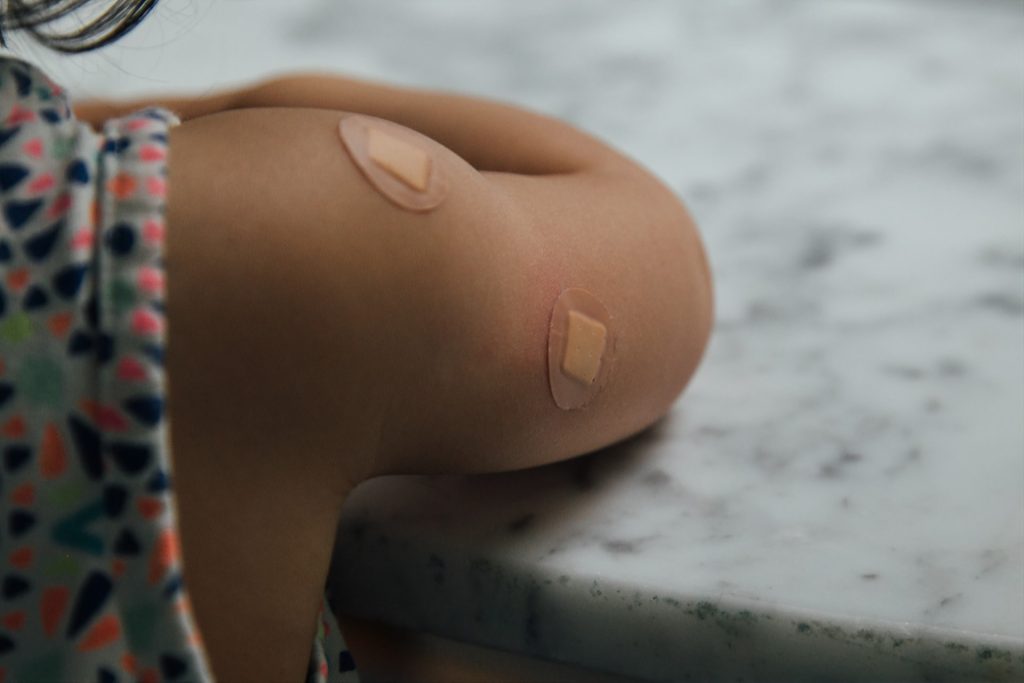The debates surrounding childhood vaccines have existed for many years. And the COVID-19 pandemic has only heightened the conversations regarding young children and shots. As a parent, it can be challenging to navigate all the information available online and make informed decisions on what’s best for your family. There are a lot of myths and misinformation out there. But the truth is that having your child receive vaccinations is one of the best things you can do for their health. Here are five health benefits of getting your child vaccinated.
5 Reasons Why Your Child Needs Vaccinations
Be proactive in the care and health of your child. Here’s why vaccines matter.
1. Vaccinations Can Save Your Child’s Life
Vaccines are responsible for saving millions of lives annually. The World Health Organization (WHO) reports that immunizations prevent four to five million deaths annually. Modern technology has made vaccines even more effective, and vaccinations are now available for various diseases that were once deadly.
Vaccines are hugely responsible for the dramatic decline in infectious diseases we have seen over the last few decades. Getting your child vaccinated can help to protect them from severe and life-threatening diseases like measles, diphtheria, and whooping cough.
2. Vaccinations Can Save You Money
Every year, countless people around the world fall ill due to preventable diseases. These illnesses often result in costly medical bills and time missed from work, which can put a financial strain on households. In comparison, the cost of childhood vaccinations is relatively low.
Hepatitis B, for example, is a potentially deadly disease that we can prevent through vaccination. In some countries, treatment for hepatitis B can cost over $3,000 per year. The cost of the vaccine, on the other hand, is only about $20, with most insurance plans covering the cost.

3. Vaccinations Can Protect Vulnerable Members of the Community
Some individuals cannot receive vaccines for health reasons, such as cancer patients, people with weakened immune systems, the elderly, and those receiving radiation therapy. Instead, these individuals rely on those around them to get vaccinated.
Having your child vaccinated not only protects them but also helps protect vulnerable community members who cannot receive vaccines.
4. Vaccinations Reduce the Risk of Hospitalization and Severe Complications
Diseases like influenza and pneumonia are serious illnesses that can often lead to hospitalization, particularly in young children and the elderly. According to the Centers for Disease Control and Prevention (CDC), the hospitalization rate for influenza-related cases declined by 100,000 in 2019-2020, thanks to vaccination.
Vaccinations can also help to reduce the severity of symptoms and the risk of complications from diseases like influenza. A 2014 study reported that the influenza vaccine could reduce the risk of pediatric intensive care unit (ICU) admission among children by up to 74%.
5. Vaccinations Provide You with Peace of Mind
As a parent or a provider, it’s natural to want to do everything possible to keep your child healthy and safe. Getting your children their vaccines can help ease your anxiety and give you peace of mind, knowing that you’ve done everything you can to protect them from harm.

Common Myths about Vaccines
With all of the pros of vaccinating your child, it’s hard to understand why anyone would choose not to do it. Unfortunately, there are many myths about vaccines that prevent people from taking their children to get their vaccinations. Here are a few of the most common ones.
Vaccines Cause Autism
This is one of the most common myths about vaccines, originating from a now-debunked study published in 1998 that claimed to have found the link between the MMR (mumps, measles, rubella) vaccine and autism. This misinformation greatly contributed to the anti-vax movement.
The study has since been retracted, and multiple studies have failed to find any link between vaccines and autism. In 2013, the CDC published a study that found no relationship between the MMR vaccine and autism.

Vaccinations Can Pose Serious Health Risks to Your Child
Another common misconception is that vaccinations can cause serious health problems like seizures, deafness, and even death. This isn’t how vaccines work. While it’s true that any medical procedure comes with some risk, the risks posed by vaccines are extremely low. The risks associated with contracting a disease are much higher. For example, the CDC reports that complications from measles — a disease preventable by vaccines — can include pneumonia, encephalitis (swelling of the brain), and death.
Vaccines are Not Effective
Countless studies have shown that vaccines are highly effective at preventing disease. The vaccine for hepatitis A, for example, for children aged 18-23 months, is about 95% effective in preventing infection.
It’s important to remember that all vaccines are rigorously tested for efficacy before they are approved for use. Years of research and testing ensure that vaccines work before they are administered to the general public. In fact, vaccinations are so effective that they have helped eradicate diseases like smallpox and polio.
The Bottom Line
Vaccinations are one of the simplest and most effective ways to protect your child from serious diseases. Researchers routinely test vaccines for safety and efficacy. We have proven that they’re effective at preventing illness. Vaccine risks are extremely low, and the pros far outweigh the cons. With the dangers of disease and the cost of healthcare, it’s simply not worth the gamble to skip out on vaccinations. If you have any questions or concerns, talk to your child’s healthcare provider. They will be happy to answer any questions and help put your mind at ease.













